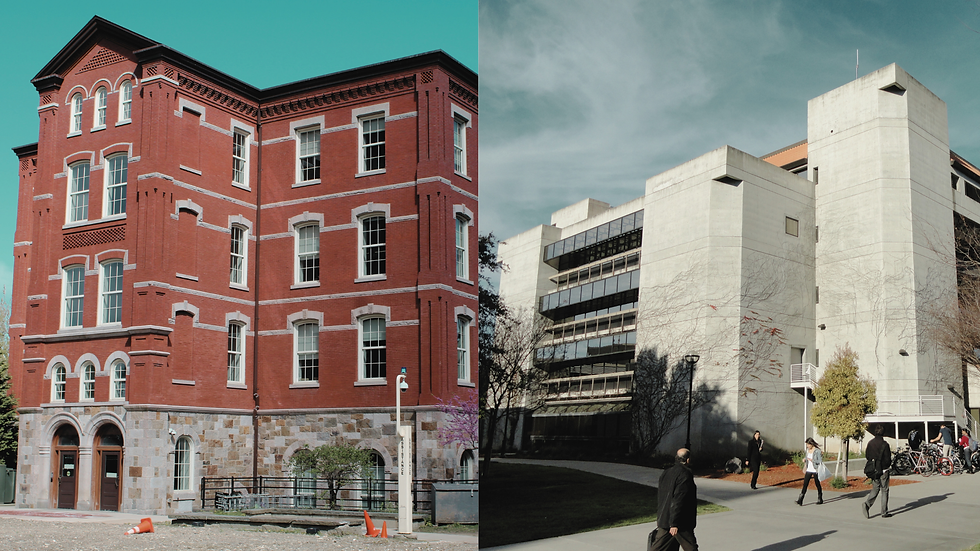"He’s Doing Poorly," Says Wife of Princeton Student Jailed in Iran
- Ebby Abramson
- Sep 18, 2017
- 3 min read
Updated: Mar 12, 2022
Iran’s imprisonment of Xiyue Wang, a naturalized United States citizen from China who is a PhD candidate in history at Princeton University, has left his family, colleagues, and supporters despondent and outraged. Wang, 37, was arrested in August 2016 while doing dissertation research at public archives in Iran. The Iranian judiciary said this July that he had been sentenced to a 10-year term for espionage.

His wife, Hua Qu, who lives in Princeton with their 4-year-old son, spoke to The New York Times in an interview this past weekend at the university, where a vigil for Mr. Wang was held to assert his innocence and demand that Iran free him. Here are excerpts:
How did you learn that your husband had been arrested?
From his lawyer. After his disappearance, Princeton engaged a local Iranian lawyer for his case. So he tracked his whereabouts with the Iranian authorities and then he confirmed that he had been detained.
He was still in his apartment. The only difference was he had no passport and laptop. So he was waiting for the call from the police so his passport could be returned. He still had his cellphone, so we had some calls and video chats every day. During those three weeks, we video chatted all the time.
How frequently can you two speak now?
For most of the time in the past year, we spoke on a weekly basis, for 10 minutes every week. In the past year he’s called me on a weekly basis.
What are those conversations like? What do you talk about?
He would tell me about his health conditions, his distress and what would happen to him. He would also ask me about the progress on our side. He would tell me that his biggest concern and his anxiety was to come home as soon as possible.
How has he described prison conditions?
Over all, he’s doing poorly there. He has health problems and hopes to get access to medical treatment and to get home as soon as possible. That is probably the only way to solve his health issues, his depression. It’s very difficult.
He has tried to respect their customs. During Ramadan, he’d fast with the other detainees. They don’t drink or eat from around 5 a.m. until 9:30 at night. It’s very difficult for him because of his other health issues, but he still tries to show respect for the Iranian people around him.
What are his health issues?
There is arthritis in his knees — it’s his biggest problem. Psychologically, it’s depression. Back pain, things like that. From time to time he got sick, but he has to endure and just wait for the symptoms to go away.
Was he held in solitary confinement?
He was in solitary for 18 days, but after that they transferred him. Since he’s come out of solitary, he has cellmates.
What does your husband request from Princeton?
He asks for books. He still very interested in reading and to spend his days in a meaningful way. It’s difficult to get him books. To get them to him, I need to get approval from the prison to get them delivered. The most difficult part is to get them to him. I sent him books back in June but he still hasn’t received them.
How has it been for you without him?
My son and I came as immigrants to support his studies, but now there is a lot of uncertainty in his academic career. Anything could happen. Now he wants a reasonably good research proposal to continue his study and to finish his dissertation. But he has a lot of anxiety because I gave up my career in China and moved here. It has been a huge transition for me. Now we are in a situation where I cannot pursue my career here and he has a huge uncertainty.
It’s really stressful for me to balance a lot of things. There are so many ups and downs. We thought Iran will release him because he’s just a student, he’s doing poorly there and he’s served a long time in prison. So we hoped. But now we hope that the mercy of the authorities will let him come home.
What about your son?
He was a 2-year-old and he’s now a 4-year-old. It’s quite laughable that the first people who knew Xiyue’s case were actually our son’s classmates at day care. He somehow learned about what happened by overhearing me, and talked about it with his classmates. I don’t know how he’s thinking about his father now, but he’s mentioning him less and less.
Was your husband warned not to go to Iran?
No, no. He didn’t receive any warning.




